Inflammation or infection can be a benefit, severe, or both. Sometimes it aids your body to protect itself from disease and injury. And sometimes, continued inflammation can lead to weight gain and illness. Pressure, inflammatory diets, and low motion levels can make this uncertainty even more possible.
However, researches prove that certain foods can resist inflammation.
There are a few anti-inflammatory foods.
Contents
Berries

Berries are fruits that are loaded with fiber, vitamins, and minerals.
Although many types exist, some of the most familiar include:
strawberries
blueberries
raspberries
blackberries
Berries contain antioxidants named anthocyanins. These compounds possess anti-inflammatory results that may decrease your prospect of disease.
Fatty Fish
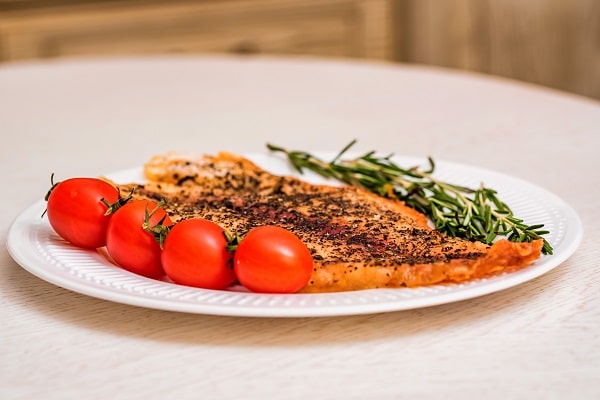
Fatty fish are a great source of protein and the long-chain omega-3 fatty acids EPA and DHA.
Even though all varieties of fish carry a certain amount of omega-3 fatty acids, certain fatty fish are amongst the best options:
- salmon/goldfish
- sardines
- herring
- mackerel
- anchovies
EPA and DHA decrease the inflammation that leads to metabolic symptoms, heart ailment, diabetes, and kidney disorder. Resolvins and proteins are compounds that are derived by the body from certain fatty acids possessing anti-inflammatory effects. Researchers have discovered that individuals using salmon or EPA and DHA additions have shown remarkable decreases in the inflammatory marker C-reactive protein (CRP).
According to another study, people with an abnormal heartbeat who received EPA and DHA daily experienced no variation in inflammatory markers than those who received a placebo.
Fatty fish boasts large volumes of the omega-3 fatty acids EPA and DHA, which possess anti-inflammatory results.
Broccoli

Broccoli is an unusually nutritious cruciferous vegetable, along with cauliflower, Brussels sprouts, and kale.
Research has revealed that eating many cruciferous vegetables is associated with a decreased risk of heart disease and cancer.
It is related to the anti-inflammatory effects of the antioxidants they contain.
Broccoli is abundant in sulforaphane, an antioxidant that combats inflammation by decreasing cytokines and NF-kB levels, which induce inflammation.
Broccoli is the largest source of sulforaphane, an antioxidant with powerful anti-inflammatory results.
Avocados
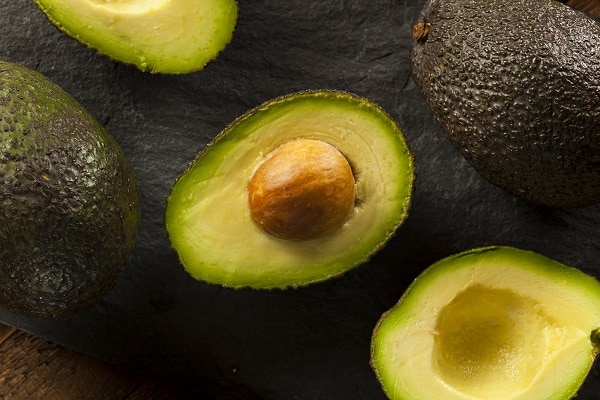
Avocados are one of the few superfoods worthy of the name.
They’re loaded with potassium, magnesium, fiber, and heart-healthy monounsaturated fats.
Additionally, they include carotenoids and tocopherols linked to reduced cancer risk.
One compound in avocados may decrease inflammation in youthful skin cells.
According to research, when people ate a wedge of avocado along with a burger, they had witnessed decreased levels of the inflammatory markers NF-kB and IL-6 than the people who ate the burger alone.
Green Tea

You must have heard that green tea is one of the best beverages you can drink.
It decreases your heart disease risk, cancer, Alzheimer’s disease, obesity, and other conditions.
Its multiple advantages are its antioxidant and anti-inflammatory qualities, especially a substance called epigallocatechin-3-gallate (EGCG).
EGCG restrains inflammation by decreasing pro-inflammatory cytokine generation and harm to the fatty acids in the cells.
You can buy green tea in most stores or online.
Peppers
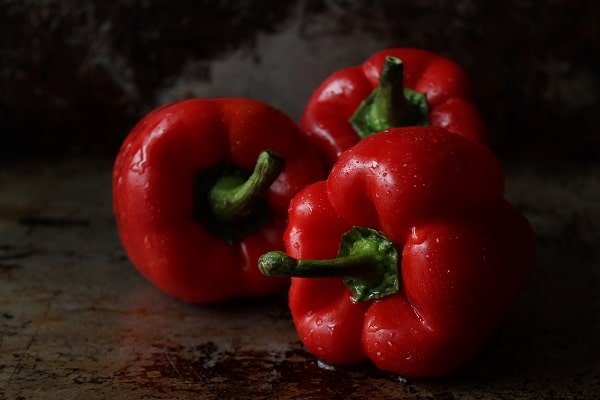
Vitamin C and antioxidants with potent anti-inflammatory effects are fully loaded in bell peppers and chili peppers.
Bell peppers produce the antioxidant quercetin, which may decrease one marker of oxidative harm in people with sarcoidosis, an inflammatory disease.
Quercetin, sinapic acid, ferulic acid, and other antioxidants with potent anti-inflammatory effects are found in abundance in chili peppers and bell peppers.
Mushrooms

Thousands of mushrooms exist worldwide, but only a few are edible and are grown commercially.
Mushrooms like truffles, portobello mushrooms, and shiitake are very moderate in calories and high in selenium, copper. All of the vitamins B. Mushrooms also contain phenols antioxidants, which provide anti-inflammatory protection. Lion’s mane is an extraordinary type of mushrooms that may decrease low-grade, obesity-related inflammation. According to research, it is found that mushrooms, when cooked, the anti-inflammatory compounds are lowered significantly. So it is advised that it is better to eat raw or lightly cooked.
Grapes
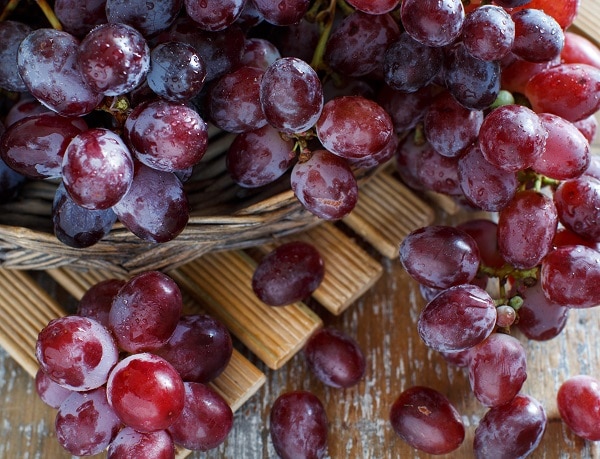
Grapes that reduce inflammation contain anthocyanins. They also reduce the prospect of many diseases, including heart, diabetes, obesity, Alzheimer’s, including eye problems. Grapes, which are the Source of resveratrol, a different compound, have several health benefits. According to research, people with a heart condition who ate grape extract daily experienced reduced inflammatory gene markers, including NF-kB. The levels of adiponectin also increased. Weight gain and increased risk of cancer are also associated with this hormone.
Turmeric

Turmeric is a spice with a robust and earthy flavor often used in curries and other Indian dishes. Turmeric is a powerful anti-inflammatory nutrient known for its content of curcumin.
Turmeric has inflammation-reducing properties like arthritis, diabetes, and other diseases. People with metabolic syndrome have observed a significant decrease in the inflammatory marker CRP by consuming 1 gram of curcumin combined with piperine from black pepper daily. It is difficult to get enough curcumin to encounter a remarkable effect from turmeric alone. There was no change in inflammatory markers in one research when women with excess weight consumed 2.8 grams of turmeric per day. Using supplements comprising isolated curcumin is much more effective. Curcumin supplements combined with piperine, which can increase curcumin absorption by 2,000%
Extra Virgin Olive Oil
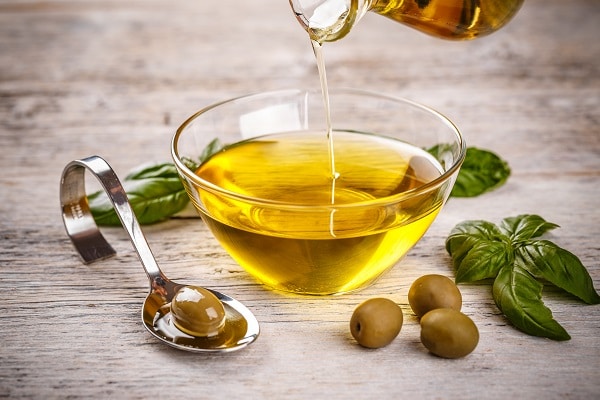
Extra virgin olive oil is one of the best fats you can eat.
It’s rich in monounsaturated fats and a staple in the Mediterranean diet, which provides various health advantages.
Studies connect extra virgin olive oil to a decreased risk of heart disease, brain cancer, and other severe health conditions.
According to one research, the Mediterranean food, CRP, and other inflammatory markers significantly reduced in those who ate 1.7 ounces (50 ml) of olive oil daily.
Oleocanthal, an antioxidant discovered in olive oil, has been linked to anti-inflammatory drugs like ibuprofen.
Let’s understand that extra virgin olive oil gives more significant anti-inflammatory advantages than those provided by more refined olive oils.
Dark Chocolate and Cocoa

Dark chocolate is delicious and rich in antioxidants that decrease inflammation. It will reduce the danger of the infection and manage to healthier aging. Flavanols keep the endothelial cells healthy that line your arteries and are also responsible for the chocolate’s anti-inflammatory effects. According to research, smokers who consumed high flavanol chocolate have encountered significant endothelial function within 2hours.
Dark chocolate containing at least 70% cocoa has a more significant percentage and is even better — to reap these anti-inflammatory benefits.
Conclusion
It would be best to fill your diet with nutritious anti-inflammatory ingredients and limit or avoid consuming foods like fried and frozen foods to promote inflammation.
Amazon Affiliate Disclosure Statement : AgingHealthyToday.com is a participant in the Amazon Services LLC Associates Program. We may earn a commission if you make a purchase through one of our links.


